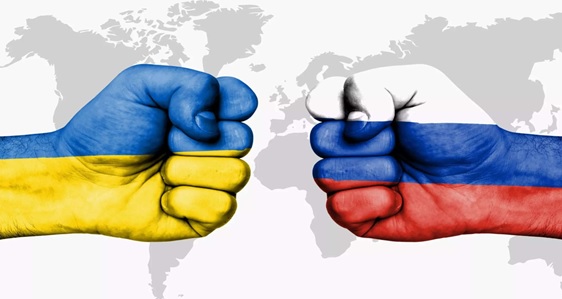
BY ABEBE WOLDEGIORGIS
It has been nine months since, the war between Ukraine and Russia out broke and before the war no one predicted that the war would bring a disastrous economic impact at the global level.
Even no one knew that the two countries have the economic capacity to sustain the war. The crisis currently affects both developing and developed countries. Western European countries suffered from shortage of resources due to cut by Russia. African and Asian countries which are dependent on the Ukraine wheat and edible oil also felt the pain in a great deal.
Professor Mengistu Ketema is an Economist and Executive Manager of the Ethiopian Economic Association. As to him, no one taught that the war between the two countries brings economic repercussion on other parts of the world in such high scale. It was not understood that its pressure would be afflictive on the world trade. Their contribution to the world economy could be understood after the outbreak of the war.
Currently, economic repercussion of the war spill over to Africa. He further said that, the economic impact of the war on the developing countries is severe. The Ethiopian economy was already facing various problems before the outbreak of the war. The oil price hike witnessed in the world market attributed to the war and the economic impact can be said worse. Inflation was common even before the two countries engaged into the war and the public felt the pain.
Drought was a recurrent phenomenon in various parts of the country that brings its own consequences on the economy. But of all, the inflation witnessed on food, fuel and fertilizer has severe consequence on the ordinary citizens. In relation to fuel, the impact is not only affects Ethiopia but also other African countries. Economic activities are heavily depends on fuel and when price hike on fuel is occurred, everything is affected. To transport products from any sector fuel is essential. Transporting inputs for agricultural or industrial production without fuel is unthinkable.
In addition to these, fuel is used as an input for fertilizer production. Therefore, one can imagine the impact of fuel on the economy. In order to enhance crop productivity, fertilizer is crucial. In relation with the impact of the war between Ukraine and Russia, import commodities in the Ethiopian economy mainly wheat and edible oil are affected seriously. Previously 40 percent of Ethiopia’s imports of wheat and edible oil came from the two warring countries.
The impact touches not only Ethiopia but also other countries which in turn brings additional price on commodities imported from other countries.
Fore example, Ethiopia imports fertilizer from Morocco and when the Moroccan economy is affected by the war between the two warring countries price hike also reflected on fertilizer which Ethiopia imports. In Africa among 25 countries almost 30 percent of their wheat imports came from the two countries.
Eritrea, for instance, imports its 100 percent wheat from the two countries. Somalia also imports 90 percent wheat from the two countries. Most African countries are heavily dependent on the two countries regarding meeting their wheat and edible oil demand. The impact not only threats the African economy today, but also consumes its future. In Ethiopia, efforts have been exerted to enhance agricultural production and productivity but to achieve the goal the availability of fertilizer is a must. Currently, the price of fertilizer in the local market has been increasing. As a result, farmer’s utilization of fertilizer per hectare is decreased which in turn reduces production. Approximately, 20 to 21 percent of the utilization of fertilizer will be reduced.
As to professor Mengistu, countries affected by the war underway between the two countries have been taking measures to withstand the impact but time will show whether it is enough or not. Resolving the impact in short term is very hard. For example, changing trade partner spontaneously is not feasible and it takes its own time. The government is trying its level best to adjust the trade system and it has to be strengthened. To raise agricultural productivity in addition to fertilizer, other inputs are vital for example, selected seeds, various chemicals such as herb and pesticides. Some of them are produced locally. Hence, scaling up the production is essential. In addition, improving their utilization is vital. Searching options for energy resource and utilizing the resource economically helps to recover the economy. In the long term, substituting the imported fertilizer and fuel helps to save hard currency and reduce dependency on foreign products. Efforts are also undergoing to ensure food security and the government is aggressively working in this regard.
As to professor Mengistu, finding additional market options is essential but it is not simple to change the market destiny. Rigorous diplomatic efforts should put in place and finding trade partner is crucial. In fact, Ethiopia is suspended from AGOA due to the war broke out in the northern part of the country.
“Had there been alternative mechanism, overcoming the impact would have been possible. Searching other option is always essential. Not only increasing the number of countries of our export products destiny but also increasing countries where we import fertilizer is essential and in such a way at least overcoming shortage of supply can be addressed,” he added.
In addition, strengthening regional trade integration is of the utmost importance. African countries should strengthen trade relations each other. Professor Mengistu said that Ethiopia’s export commodities destined to the two countries are insignificant of which the major export item is coffee. 90 percent of Russia’s import from Ethiopia is coffee.
But this does not indicate that the volume of the export of coffee is huge but out of the total export items coffee takes the lion share. Ethiopia’s export to Ukraine is also the same. Ethiopian export items are not diversified and high in volume and most of them are agricultural products. Hence, if Russia or Ukraine or both do not import Ethiopian products, it does not have any significant impact on their economy, because they can obtain the products from other countries.
Professor Mengistu further elaborated that due to the price hike in the international market, Ethiopia spent huge amount of Dollars for the purchasing of fuel and fertilizer within only six months which it should spent in a year.
This means most of Ethiopia’s reserved hard currency is spent for the importation of food items, fuel and fertilizer. But the situation has to be changed. For example, substituting the imported edible oil and foods by local products has to be taken as option. Ethiopia has abundant natural resources such as vast arable land, water, and human resources. Thus, reducing importation dependency on of food items is essential via exploiting the resources. In fact for the time being substituting of fuel and fertilizer by local products might be hard but replacing chemical fertilizer by compost can be taken as a way out.
The economic impact of the war seems to be continued unless the two countries come to cessation of hostilities. Countries assumed that they would be free from the impact of COVID-19 by 2023 and imagined that they will begin to recover their economy from the severe crackdown. But because of the war broke out between Russia and Ukraine, their intention is left as day dreaming. Therefore, not only Ethiopia but also other countries are unable to return their economic performance to the level before the outbreak of COOVID 19. Therefore, economy of many countries would continue to face the crises posed by the war taking place between the two countries.
As to the Professor, currently, shortfall in supplying essential goods to markets likely continues due to the price hike of fuel in the world market. Hence, searching for other option is vital. Among the options; reducing fuel consumption is one. For instance, European Union member countries are working to reduce their fuel consumption by 15 percent. In Ethiopia too, strategy should be in place to reduce fuel consumption. Utilizing vehicles for short trip must be given up. Replacing fuel vehicles by solar and electric powered vehicles must also be taken as a way out.
In Kenya, electric powered public transport service buses and motor bicycles are already introduced and replicating their experience here is essential because it can serve as a tool for the reduction of fuel consumption.
The Ethiopian Herald November 8/2022





